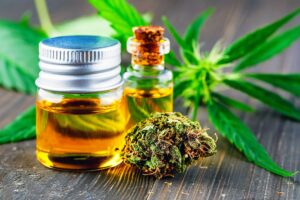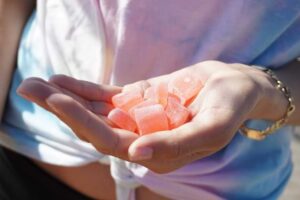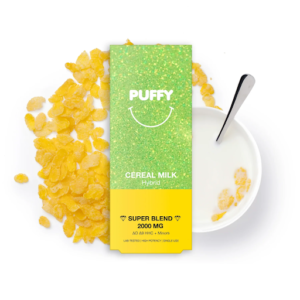
Delta 8 THC has recently become the talk of the town, not just for its therapeutic benefits but also for the legal complications surrounding the cannabinoid. In this blog, we’ll go over some of the most talked-about aspects of the cannabinoid and clarify some of your doubts. But first, let’s get the basics right.
What is Delta 8 THC?
Delta 8 THC is a cannabinoid naturally found in Cannabis Sativa plants. This compound is one of 100 other cannabinoids found in the plant.
Delta 8 THC is a psychoactive cannabinoid; in other words, it has an intoxicating effect and leads to the “high” of cannabis.
The cannabinoid isn’t as potent or intoxicating as Delta 9 THC.
Cannabis plants have a very minimal quantity of Delta 8 THC, so most D8 products are synthesized from CBD.
Due to the fact that it isn’t naturally sourced (instead synthesized from a naturally occurring compound) nor its intoxicating nature, the compound is surrounded by legal complications.
Why is Delta 8 the Hyped Cannabinoid of 2022?
Status as Delta 9’s Nicer Younger Sibling
Ever since the cannabinoid attracted traction, one question revolves everywhere. Is Delta 8 and Delta 9 the same?
The truth is, the two are analogs of THC, along with other cannabinoids like THCV, THCA, and Delta 10 THC. Following some alterations in their chemical structures, these cannabinoids exhibit some similar and some slightly differing characteristics. In the case of Delta 8 and Delta 9, D8 is therefore known as the better of the two siblings.
This is because Delta 8 has milder intoxicating effects, fewer side effects, and much relief to patients or consumers.
Potential Health Benefits
Delta 8 is best known for its effects that lie somewhere between CBD and Delta 9 THC. While in no way is D8 similar to CBD, it does provide comparable benefits.
Like CBD, D8 has anti-nausea, analgesic, anti-anxiety, and anti-inflammatory benefits that are beneficial for patients suffering from chronic ailments or other state-approved conditions.
Like THC, D8 improves appetite, sleep quality, mood, reduce stress and inflammation, etc.
It is also crucial to remember that the cannabinoid isn’t well researched and may also have some side effects. You can read these 5 things about Delta 8 THC to understand it better.
Subtle High
Delta 8 has intoxicating effects, similar to Delta 9. However, D9 is much more potent than the other and also leads to more severe side effects. These majorly include hallucinations, mental fog, cognitive imbalance, paranoia, anxiety, and more.
In the case of D8, such side effects are less heard of. This is why patients or adult consumers who are wary of Delta 9 and its intoxicating effects tend to choose Delta 8. If you’re unable to make the right choice between the two cannabinoids and what would suit you better, you can consult a California Marijuana Doctor.
Natural Availability and Extraction
Delta 8 is scarcely available in cannabis plants. As a minor cannabinoid, the naturally occurring quantity of delta 8 is minimal, to the point that extracting those minute quantities becomes too tiresome. Instead, a synthetic way of producing the cannabinoid involves synthesizing it from CBD with the use of some solvents.
Because D8 is now synthesized from CBD, it is sourced from hemp plants, not marijuana plants. This process is expensive, resulting in limited Delta 8 products in the market compared to CBD or Delta 9. However, another reason behind its limited supply is its legal status.
Legal Complications
The 2018 Farm Bill legalized cannabis products that were sourced from hemp and not marijuana. States could choose to legalize the substance if the strain or product had less than 0.3% Delta 9 THC and came from the right source. But what about Delta 8? Is D8 legal? How much D8 can a product contain to be declared legal and safe?
The truth is that no particular law defines the legal status of the minor cannabinoid. The FDA made it very clear that no recreationally available cannabis product should have more than 0.3% THC (D9), but no such statements were passed regarding Delta 8.
Not only this, but the Farm Bill also legalized cannabis products that were hemp sourced because hemp is naturally THC 9 deficient. In other words, hemp plants only contain 0.3% THC or less.
The ambiguity of the Farm Bill has led to a complicated scenario where it doesn’t directly legalize the cannabinoid but also places no restrictions on its extraction and consumption.
At this point, certain states have given Delta 8 an illegal status to avoid any health complications as the cannabinoid still lacks research.
Ending Words
The hype around Delta 8 is dues to multiple factors, ranging from its similarities to Delta 9 THC in terms of intoxication to the Farm Bill that legalizes the cannabinoid due to its ambiguity. However, we cannot dismiss the fact that the cannabinoid still requires more research before we can be sure of its safe consumption.







